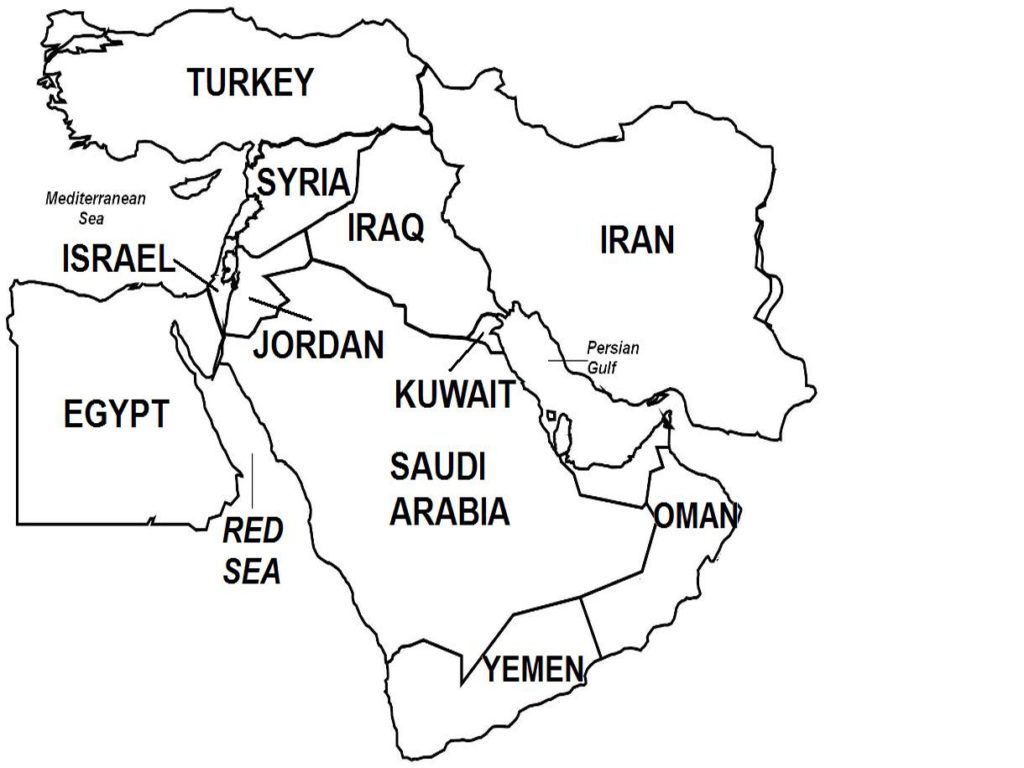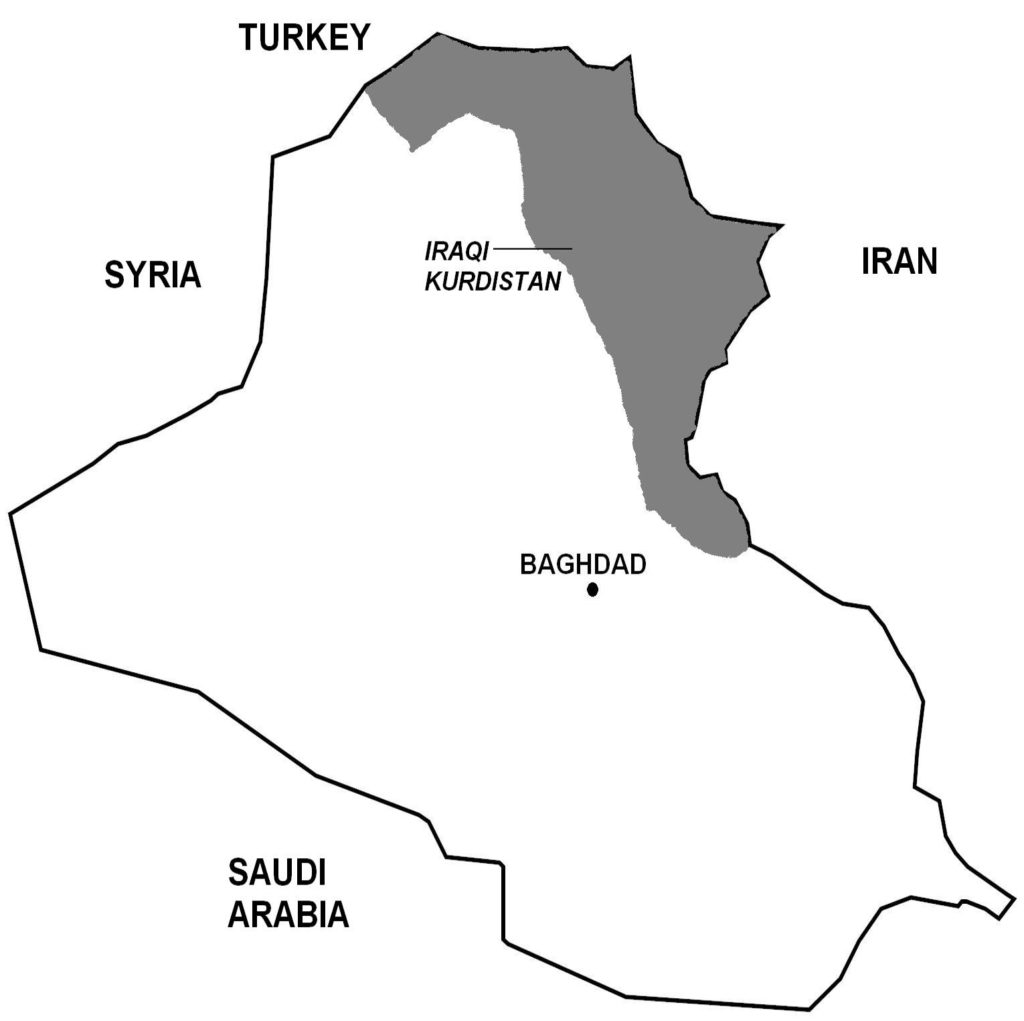In June 1973, Mustafa Barzani, leader of the Kurdistan Democratic Party (KDP) and representing the Iraqi Kurdish people, made a formal claim to Kirkuk, a major city in northern Iraq. But in December of that year, the Iraqi government released a revised Kurdish autonomy plan that did not include Kirkuk. As expected, Barzani rejected the proposal, and negotiations resumed in January 1974. Then on February 16, 1974, as the four-year deadline approached to implement Kurdish autonomy as stipulated in the Iraqi-Kurdish Autonomy Agreement of 1970, the government released yet another autonomy plan which, like the previous proposals, granted broad political, social, and economic concessions to the Kurds, but did not include Kirkuk. The government also declared that it would carry out the plan on March 11, 1974.
Aware that Barzani would reject the proposal, the Iraqi government went ahead with implementation, forming a Kurdish provincial council and legislative assembly with the cooperation of Kurdish factions that opposed Barzani. On March 12, 1974, the government gave Barzani 15 days to accept the plan. Barzani ignored the ultimatum.
The Kurds’ combat capability centered on the paramilitary organization called Peshmerga, which was controlled by Barzani. War broke out on March 12, 1974, one day after the autonomy law came into effect. Anticipating the resumption of hostilities, both the Iraqi Armed Forces and Peshmerga had amassed weapons during the intervening period.

(Taken from Second Iraqi-Kurdish War – Wars of the 20th Century – Volume 4)
Background In 1961, war broke out between the Iraqi Army and Kurdish rebels because of the Iraqi government’s inaction regarding the autonomy of Iraqi Kurdistan (previous article). Ten years of fighting led to inconclusive results, forcing the government to offer the Kurds a new proposal for autonomy. Negotiations held between Mustafa Barzani, leader of the Kurdistan Democratic Party (KDP) representing the Kurds, and Iraqi Vice-President Saddam Hussein, led to the establishment of the Kurdish Autonomous Region in March 1970 under the Iraqi-Kurdish Autonomy Agreement.
The agreement, which gave broad national and regional political, economic, and social concessions to the Kurds, was scheduled to be implemented in four years, i.e. starting in March 1974, subject to the results of a population census to determine the territorial extent of the new Kurdish autonomous region. The census itself immediately became the subject of contention, specifically with regards to the oil-rich region of Kirkuk (which contributed 40% of Iraq’s oil production). Barzani was adamant in his claim that Kirkuk formed part of the Kurdish people’s traditional homeland and thus must be included in the autonomous region. The Iraqi government and Barzani agreed to defer carrying out the census and instead negotiated the other, less contentious points; as a result, the census was not undertaken.

A previous population census for Kirkuk, taken in 1957, had shown that within the city, Kurds did not form the largest ethnic group (Turkish speakers – 37.5%, Kurds – 33%, Arabs – 22%); they did, however, across the province (Kurds – 48%, Arabs 28%, Turkmen – 21%). (Another population census, conducted in 1965, was rejected outright by the KDP and thus not seriously taken up in the discussions.) Soon thereafter, Barzani accused the government of carrying out policies that deliberately resettled ethnic Arabs from other parts of the country into economically important areas of Kurdistan in order to alter the population ratios to the disadvantage of the local Kurdish population. This Arab influx ostensibly formed part of the government’s so-called “Arabization” programs and took place in Kirkuk, as well as other oil-rich areas such as Khanaqin and Sinjar.
In June 1973, Barzani made a formal claim to Kirkuk. But in December of that year, the Iraqi government released a revised Kurdish autonomy plan that did not include Kirkuk. As expected, Barzani rejected the proposal, and negotiations resumed in January 1974. Then on February 16, 1974, as the four-year deadline approached to implement Kurdish autonomy as stipulated in the Iraqi-Kurdish Autonomy Agreement of 1970, the government released yet another autonomy plan which, like the previous proposals, granted broad political, social, and economic concessions to the Kurds, but did not include Kirkuk. The government also declared that it would carry out the plan on March 11, 1974.
Aware that Barzani would reject the proposal, the Iraqi government went ahead with implementation, forming a Kurdish provincial council and legislative assembly with the cooperation of Kurdish factions that opposed Barzani. On March 12, 1974, the government gave Barzani 15 days to accept the plan. Barzani ignored the ultimatum.
The Kurds’ combat capability centered on the paramilitary organization called Peshmerga, which was controlled by Barzani. War broke out on March 12, 1974, one day after the autonomy law came into effect. Anticipating the resumption of hostilities, both the Iraqi Armed Forces and Peshmerga had amassed weapons during the intervening period.
